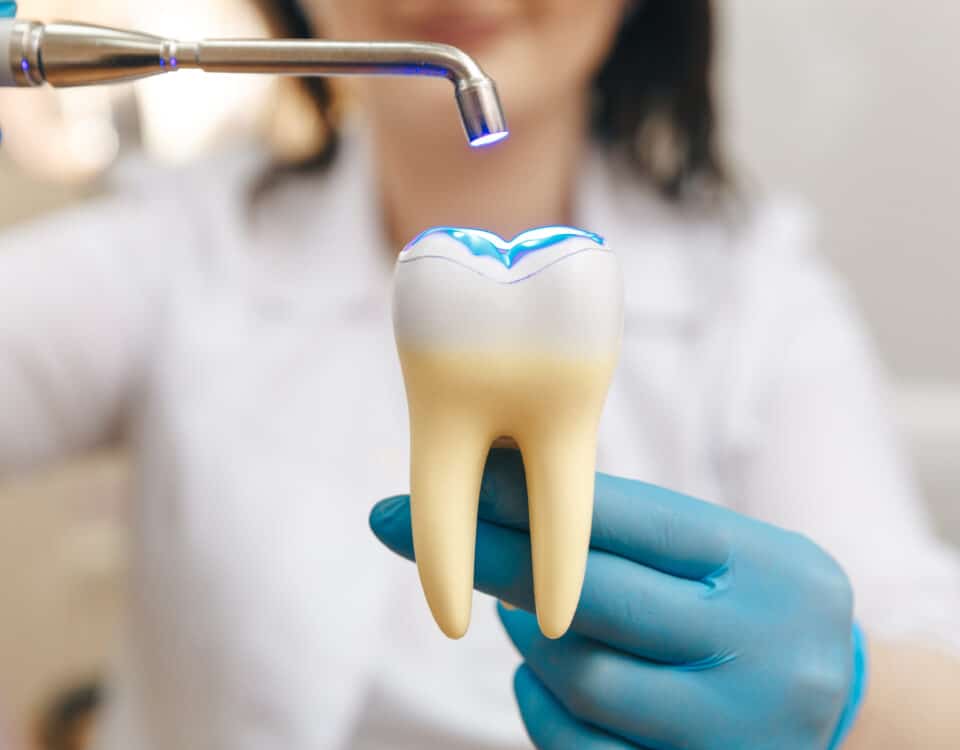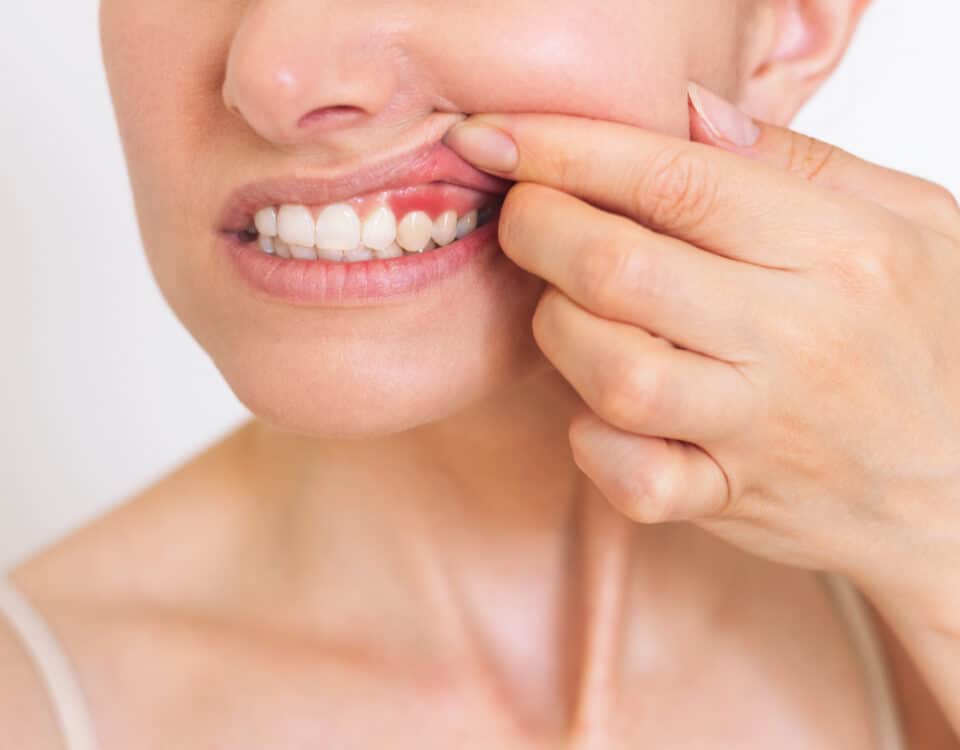What To Do For Sensitive Teeth
Start The Holidays Off Right With A Brighter Smile
December 5, 2019Tips For Protecting Teeth During The Holidays
December 19, 2019One of the most common dental problems that people face is tooth sensitivity. While not everyone will suffer from sensitive teeth, those who do typically have worn tooth enamel or exposed tooth roots that leave their mouths vulnerable to sensitivity. Tooth sensitivity often worsens when consuming hot or cold foods and beverages, and is typically accompanied by sharp pains in the mouth. Some ways to treat this issue is by using desensitizing toothpaste, increasing your fluoride intake to strengthen tooth enamel and using a mouthguard at night if you grind your teeth. Find out all the different options that you can choose from to treat tooth sensitivity by reading this guide!
How Tooth Sensitivity Develops
Millions of people across the nation suffer from tooth sensitivity each year, with some experiencing small bouts of it while others live with it for extended periods of time. Sensitive teeth is one of the most annoying and painful oral conditions out there since your teeth constantly hurt when drinking hot or cold beverages or even breathing in cold air. We know what tooth sensitivity is, but how does it develop? For starters, it depends on the situation. Most cases of sensitive teeth develop due to exposed tooth root areas caused by periodontal disease or gum recession. The crowns of our teeth have enamel on them to protect them from decay and avoid sensitivity, but our tooth roots don’t have that same enamel coverage. Their layering is called cementum, and once that deteriorates, the dentin underneath it becomes exposed. This leads to sensitive teeth and can be extremely difficult to remediate. Sensitive teeth can also be due to overzealous brushing habits or using abrasive toothpastes to brush the teeth with. These two habits can strip your tooth enamel until the dentin is exposed, leaving you susceptible to sensitivity. Having an acidic diet full of citrus fruits and soda causes tooth erosion, as well, and can make it difficult to eat the foods that you love. Eating disorders, like bulimia, and medical conditions like GERD (gastroesophageal reflux disease) also contribute to tooth sensitivity as the acid they produce eats away at tooth enamel.
What To Do For Sensitive Teeth
Luckily, sensitive teeth usually resolve on their own after a few months. A few months can seem like a long time, though, when everything you eat and drink hurts your teeth, so there are a few things that you can do to expedite this process. One of the best things that you can do is brush with desensitizing toothpaste. This specific type of toothpaste blocks sensations from reaching your nerves within your teeth, which lessens your pain. Fluoride gels are also helpful as they strengthen tooth enamel and reduce tooth sensations, as well. For those cases in which gum recession has occurred, it might be beneficial to receive a surgical gum graft to cover the root area that has lost its tissue covering. This will protect the tooth again and eliminate sensitivity. Crowns and bonding procedures are also used if a tooth flaw is what’s causing your tooth sensitivity. In the most severe cases when all of these options have been exhausted, a root canal will be necessary. This is a worst-case scenario but an effective way to remedy extreme pain and damage.
Tips For Preventing Sensitivity
Even though tooth sensitivity is one of the easiest oral health problems to fix, it can still cause a lot of problems and pain for you. The best thing that you can do is implement preventative techniques to avoid sensitive teeth in the first place. Keeping your mouth as healthy as possible through good oral hygiene is one of the easiest ways to prevent sensitive teeth. Brushing and flossing your teeth each day will not only prevent tooth sensitivity but keep tooth decay, periodontal disease and gum recession at bay. Combine those two things with a low abrasion toothpaste and your mouth will be disease and sensitivity-free. Additionally, you should take close care of what foods and drinks you consume. Your diet plays an important part in your oral health, and it significantly impacts tooth strength. Try to avoid acidic foods as often as you can, especially if you’ve experienced tooth sensitivity in the past. One thing that many people try to do when they start to experience sensitive teeth is to ignore it-never do that! If your teeth are hurting or bothering you in any way, make sure to schedule a dental checkup so that your dentist can review your oral health. Your dentist will be able to examine your teeth and gums for signs of periodontal disease and gum recession, plus he/she can evaluate your diet and brushing habits to ensure that you’re doing things correctly. Taking time to brush and floss your teeth each day, avoiding acidic foods and meeting with your dentist for regular dental checkups will reduce your likelihood of developing tooth sensitivity and keep your smile happy and healthy for years to come.
Improve Your Oral Health With Our Help!
At Stonebrook Family Dental, we care about your oral health and want to help you avoid tooth sensitivity. If you’re experiencing sensitive teeth, call our office at (303) 872-7907 to schedule an evaluation. You shouldn’t be worrying about what foods you and can’t eat during the holidays; call our office today so that you can get back to enjoying the foods you like with our help!




